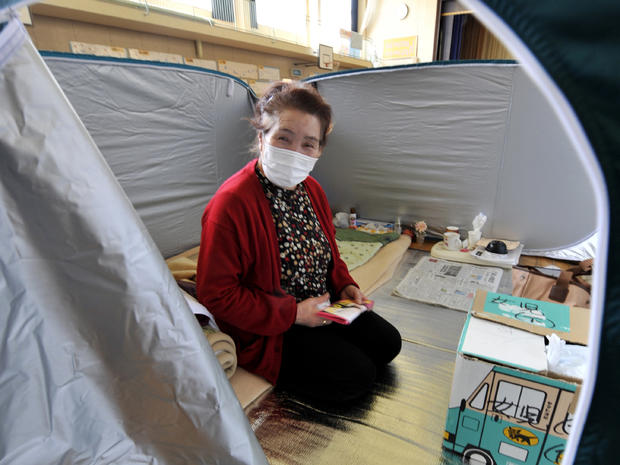Japan's "nuclear refugees" face the unknown
This story was filed by CBS News correspondent Lucy Craft
TOKYO - There are still 139,000 people living in shelters across Japan. While most of those displaced by the earthquake and tsunami in the Miyagi and Iwate prefectures (states) can expect to eventually return home, the fate of Fukushima's 47,000 "nuclear refugees" is murky.
In the wake of this week's stunning upgrade of the Fukushima crisis to a Chernobyl-level nuclear accident, overseas customers are demanding radiation checks not just for Japanese food exports, but even for industrial goods and seemingly innocuous products like diapers and erasers.
Complete coverage: Disaster in Japan
The flow of tourists into Japan has plummeted 50 percent.
But the fraught situation of Fukushima's evacuees is especially poignant. When and if the plant is finally brought under control - a process which, under the best of circumstances, is expected to take at least six months -- the real estate is likely to remain, very literally, radioactive.
New glitch at nuke plant as search for survivors continues
I broached this issue with Chief Cabinet Secretary Yukio Edano, the man who has become the public face of Japan's government during the crisis.
Yukio Edano: Face of calm in Japan's storm
Asked whether there was any possibility the land around the Fukushima Dai-ichi plant could become a permanent no-man's land, Edano deftly dodged the question.
He said such a decision would have to wait until after the nuclear plant is brought under control.
"Without objective data about the soil condition, we can't make any kind of determination, but, of course, the soil may be heavily contaminated around the plant."
Prime Minister Naoto Kan, Edano's boss, apparently didn't get the memo about staying mum on this explosive subject: When word leaked that he had estimated the area would become off-limits for 10 to 20 years, all hell broke loose. Edano was forced to say the remarks were taken out of context, but no one's buying it.

